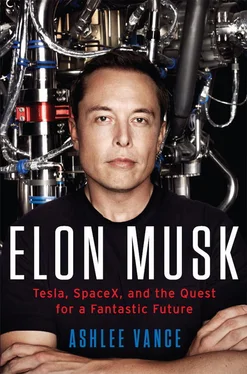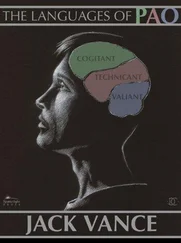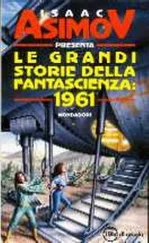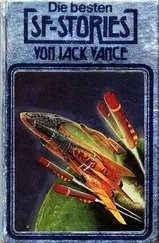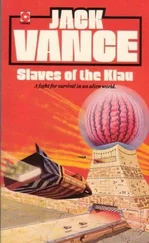1 ...6 7 8 10 11 12 ...94 Whenever the topic of Errol arrives, members of Elon’s family clam up. They’re in agreement that he is not a pleasant man to be around but have declined to elaborate. Errol has since been remarried, and Elon has two, younger half sisters of whom he’s quite protective. Elon and his siblings seem determined not to bad-mouth Errol publicly, so as not to upset the sisters.
The basics are as follows: Errol’s side of the family has deep South African roots. The Musk clan can trace its presence in the country back about two hundred years and claim an entry in Pretoria’s first phone book. Errol’s father, Walter Henry James Musk, was an army sergeant. “I remember him almost never talking,” Elon said. “He would just drink whiskey and be grumpy and was very good at doing crossword puzzles.” Cora Amelia Musk, Errol’s mother, was born in England to a family famed for its intellectual genes. She embraced both the spotlight and her grandchildren. “Our grandmother had this very dominant personality and was quite an enterprising woman,” said Kimbal. “She was a very big influence in our lives.” Elon considered his relationship with Cora—or Nana, as he called her—particularly tight. “After the divorce, she took care of me quite a lot,” he said. “She would pick me up from school, and I would hang out with her playing Scrabble and that type of thing.”
On the surface, life at Errol’s house seemed grand. He had plenty of books for Elon to read from cover to cover and money to buy a computer and other objects that Elon desired. Errol took his children on numerous trips overseas. “It was an amazingly fun time,” said Kimbal. “I have a lot of fun memories from that.” Errol also impressed the kids with his intellect and dealt out some practical lessons. “He was a talented engineer,” Elon said. “He knew how every physical object worked.” Both Elon and Kimbal were required to go to the sites of Errol’s engineering jobs and learn how to lay bricks, install plumbing, fit windows, and put in electrical wiring. “There were fun moments,” Elon said.
Errol was what Kimbal described as “ultra-present and very intense.” He would sit Elon and Kimbal down and lecture at them for three to four hours without the boys being able to respond. He seemed to delight in being hard on the boys and sucked the fun out of common childhood diversions. From time to time, Elon tried to convince his dad to move to America and often talked about his intentions to live in the United States later in life. Errol countered such dreams by trying to teach Elon a lesson. He sent the housekeepers away and had Elon do all the chores to let him know what it was like “to play American.”
While Elon and Kimbal declined to provide an exact recounting, they clearly experienced something awful and profound during those years with their father. They both talk about having to endure some form of psychological torture. “He definitely has serious chemical stuff,” said Kimbal. “Which I am sure Elon and I have inherited. It was a very emotionally challenging upbringing, but it made us who we are today.” Maye bristled when the subject of Errol came up. “Nobody gets along with him,” she said. “He is not nice to anyone. I don’t want to tell stories because they are horrendous. You know, you just don’t talk about it. There are kids and grandkids involved.”
When asked to chat about Elon, Errol responded via e-mail: “Elon was a very independent and focused child at home with me. He loved computer science before anyone even knew what it was in South Africa and his ability was widely recognized by the time he was 12 years old. Elon and his brother Kimbal’s activities as children and young men were so many and varied that it’s difficult to name just one, as they travelled together with me extensively in S. Africa and the world at large, visiting all the continents regularly from the age of six onwards. Elon and his brother and sister were and continue to be exemplary, in every way a father could want. I’m very proud of what Elon’s accomplished.”
Errol copied Elon on this e-mail, and Elon warned me off corresponding with his father, insisting that his father’s take on past events could not be trusted. “He is an odd duck,” Musk said. But, when pressed for more information, Musk dodged. “It would certainly be accurate to say that I did not have a good childhood,” he said. “It may sound good. It was not absent of good, but it was not a happy childhood. It was like misery. He’s good at making life miserable—that’s for sure. He can take any situation no matter how good it is and make it bad. He’s not a happy man. I don’t know … fuck … I don’t know how someone becomes like he is. It would just cause too much trouble to tell you any more.” Elon and Justine have vowed that their children will not be allowed to meet Errol.
When Elon was nearly ten years old, he saw a computer for the first time, at the Sandton City Mall in Johannesburg. “There was an electronics store that mostly did hi-fi-type stuff, but then, in one corner, they started stocking a few computers,” Musk said. He felt awed right away—“It was like, ‘Whoa. Holy shit!’”—by this machine that could be programmed to do a person’s bidding. “I had to have that and then hounded my father to get the computer,” Musk said. Soon he owned a Commodore VIC-20, a popular home machine that went on sale in 1980. Elon’s computer arrived with five kilobytes of memory and a workbook on the BASIC programming language. “It was supposed to take like six months to get through all the lessons,” Elon said. “I just got super OCD on it and stayed up for three days with no sleep and did the entire thing. It seemed like the most super-compelling thing I had ever seen.” Despite being an engineer, Musk’s father was something of a Luddite and dismissive of the machine. Elon recounted that “he said it was just for games and that you’d never be able to do real engineering on it. I just said, ‘Whatever.’”
While bookish and into his new computer, Elon quite often led Kimbal and his cousins (Kaye’s children) Russ, Lyndon, and Peter Rive on adventures. They dabbled one year in selling Easter eggs door-to-door in the neighborhood. The eggs were not well decorated, but the boys still marked them up a few hundred percent for their wealthy neighbors. Elon also spearheaded their work with homemade explosives and rockets. South Africa did not have the Estes rocket kits popular among hobbyists, so Elon would create his own chemical compounds and put them inside of canisters. “It is remarkable how many things you can get to explode,” Elon said. “Saltpeter, sulfur, and charcoal are the basic ingredients for gunpowder, and then if you combine a strong acid with a strong alkaline, that will generally release a lot of energy. Granulated chlorine with brake fluid—that’s quite impressive. I’m lucky I have all my fingers.” When not handling explosives, the boys put on layers of clothing and goggles and shot each other with pellet guns. Elon and Kimbal raced dirt bikes against each other in sandlots until Kimbal flew off his bike one day and hurtled into a barbed wire fence.
As the years went on, the cousins took their entrepreneurial pursuits more seriously, even attempting at one point to start a video arcade. Without any parents knowing, the boys picked out a spot for their arcade, got a lease, and started navigating the permit process for their business. Eventually, they had to get someone over eighteen to sign a legal document, and neither the Rives’ father nor Errol would oblige. It would take a couple of decades, but Elon and the Rives would eventually go into business together.
The boys’ most audacious exploits may have been their trips between Pretoria and Johannesburg. During the 1980s, South Africa could be a terribly violent place, and the thirty-five-mile train trip linking Pretoria and Johannesburg stood out as one of the world’s more dangerous rides. Kimbal counted the train journeys as formative experiences for him and Elon. “South Africa was not a happy-go-lucky place, and that has an impact on you. We saw some really rough stuff. It was part of an atypical upbringing—just this insane set of experiences that changes how you view risk. You don’t grow up thinking getting a job is the hard part. That’s not interesting enough.”
Читать дальше
Конец ознакомительного отрывка
Купить книгу
